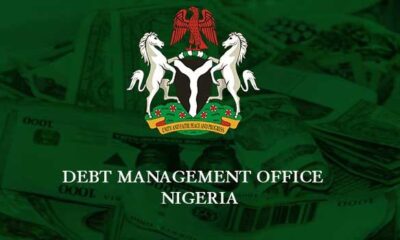According to Nigeria’s Debt Management Office (DMO), Nigeria’s total public debt rose by 4.1% or N1.5trn from N38trn at end-September ‘21 to N39.5trn at end-December 2021. The total public debt increased by 20.2% or N6.6trn when compared to the corresponding period in 2020. As at end-2021, public debt is equivalent to 22.5% of 2021 nominal GDP.
This is in line with the DMO’s debt management target of a debt-to-GDP ratio of 40% of GDP for the period 2020-2023 and below the limit of 55% set by the World Bank for countries within Nigeria’s peer group. It is also below the 70% set by the Economic Community of West African States. According to the DMO, disbursements by multilateral
and bilateral creditors account for a significant portion of the increase in the debt stock.
Total domestic debt increased by 17.3% y/y from N20.2trn in 2020 to N23.7trn at end2021. This constitutes 59.9% of total public debt. On a q/q basis, it increased by 5.7%, on the back of increased issuances of FGN bond and Nigerian treasury bills (NTBs) in Q4 ’21.
In terms of composition, FGN domestic debt constitutes 81.2% of total domestic debt, while states and FCT make up the remaining 18.8%. Bonds and NTBs make up 92.2% of total FGN domestic debt while FGN sukuk, treasury bond, savings bond, green bond, and promissory notes make up the remaining 7.8%.
The share of states and the FCT’s domestic debt increased by 6.2% q/q to N4.5trn from N4.2trn at end-September ‘21. On a y/y basis, it increased by 6.5%. The most indebted states were Lagos (N658bn), Ogun (N232bn) and Rivers (N225bn).
Coronation Merchant Bank notes that with the securitisation of the ways and means advances from the CBN and the addition of AMCON debt, the domestic debt stock is likely to increase. As at end-2021, the stock of CBN’s ways and means advances stood at N13.3trn.
External debt stock stood at USD38.3bn (N15.8trn) at end-2021. This points towards increases of 1.8% q/q and 24.7% y/y. The rise was largely due to the USD4bn Eurobonds issued by the FGN in September ’21, as part of new external borrowing in the 2021 appropriation act.
The external debt stock accounts for 40.1% of total public debt. Multilateral and bilateral loans account for the bulk of the external debt at 60.2%, while commercial loans and promissory notes represent the remaining 39.8%.
Insufficient revenue continues to hamper Nigeria’s fiscal landscape, resulting in one of the highest debt-service-to-revenue ratio among African economies.
Nigeria spent N2.9trn on servicing domestic debts, and N877.5bn on external debt servicing. As at November ’21, the FGN’s debt service to revenue ratio was 76%.
The FGN’s 2022 aggregate expenditure is estimated at N17.1trn. Revenue is expected to be N10.7trn, and the deficit of N6.4trn is expected to be financed by foreign borrowings of N2.57trn, domestic borrowings of N2.57trn, privatisation proceeds of N90.7bn, and multi-lateral /bi-lateral loan drawdowns of N1.16trn. We note that the 2022 FGN budget contains a provision of N443bn for subsidy for January-June. President Buhari is seeking approval of an additional N2.5trn supplementary budget to cater for fuel subsidy.
Last week, The DMO announced that Nigeria raised USD1.25bn (N520bn) through Eurobonds. This makes Nigeria the first African country to access the international capital market (ICM) in 2022. The order book reached USD3.7bn. It included quality investors across the United States, Europe, and Asia. According to the DMO, the proceeds of the Eurobond will be used to finance critical capital projects in the budget. Additionally, it would
contribute directly to external reserves.
Despite the increase in the total public debt stock, as a percentage of GDP (22.5%), this is relatively low when compared with other African economies such as Ghana (81%), Kenya (65%), South Africa (80%) and Egypt (90%). The onus is on the FGN to ensure that borrowed funds are used productively.
Coronation Merchant Bank notes the FGN’s strategic revenue growth initiatives such as the Finance Act and other measures aimed at leveraging technology and automation in improving tax administration, as well as the introduction of a pro-health tax (excise duty on carbonated drinks). These among others are geared towards improving government revenue.

 Billionaire Watch2 weeks ago
Billionaire Watch2 weeks ago
 Startups4 weeks ago
Startups4 weeks ago
 News4 weeks ago
News4 weeks ago
 News4 weeks ago
News4 weeks ago
 Bitcoin4 weeks ago
Bitcoin4 weeks ago
 Naira4 weeks ago
Naira4 weeks ago
 Forex3 weeks ago
Forex3 weeks ago
 Treasury Bills4 weeks ago
Treasury Bills4 weeks ago

























